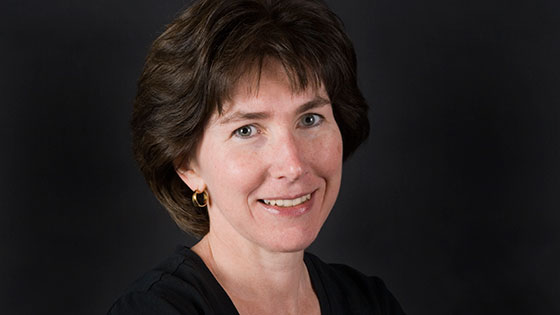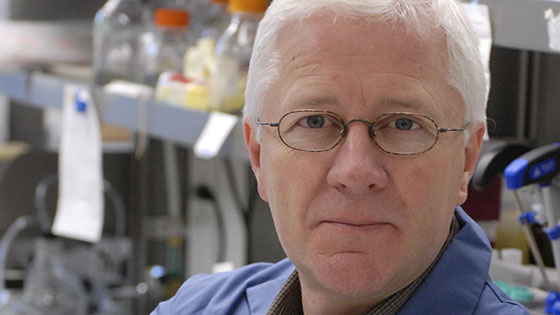
Dr. Cheryl Arrowsmith will lead a Canadian team in improving the translation of epigenetics
research into better human health. (Photo: UHN)
On July 10, The Honourable Leona Aglukkaq, Minister of Health, announced nine research teams will receive funding of $21.8M over five years to examine how environmental factors can alter the expression of DNA and affect human health.
The research teams will be funded by the Canadian Institutes of Health Research (CIHR) in partnership with Genome BC, Fonds de recherche du Québec-Santé (FRQS) and the Japan Science & Technology Agency.
Last October, Minister Leona Aglukkaq announced the federal commitment to support research teams through the Canadian Epigenetics, Environment and Health Research Consortium (CEEHRC), a national initiative designed to position Canada as a leader in the field of epigenetics and health.
Nine research teams were selected by a rigorous peer-review panel of international experts. Research teams include: six Canadian teams and three teams composed of both Canadian and Japanese researchers.
Among researchers who will lead Canadian teams focusing on improving the translation of epigenetics research into better human health is Dr. Cheryl Arrowsmith, Senior Scientist at the Ontario Cancer Institute (OCI). Dr. Arrowsmith's research will measure the influence of the microbiome on epigenetic mechanisms in inflammatory bowel disease.

Dr. John Dick will collaborate with Canadian and Japanese researchers to address ongoing challenges in
the epigenetics of stem cells. (Photo: UHN)
Dr. John Dick will work with Japanese researchers to address ongoing challenges in the epigenetics of stem cells. Dr. Dick and Dr. Hiromitsu Nakauchi (University of Tokyo) will seek ways to improve methods for engineering stem cells made from hematopoietic stem cells, potentially identifying new therapeutic targets. They hope their epigenetic roadmap of the blood system and leukemia will become a new important resource for the research community.
Full news release coming soon.
